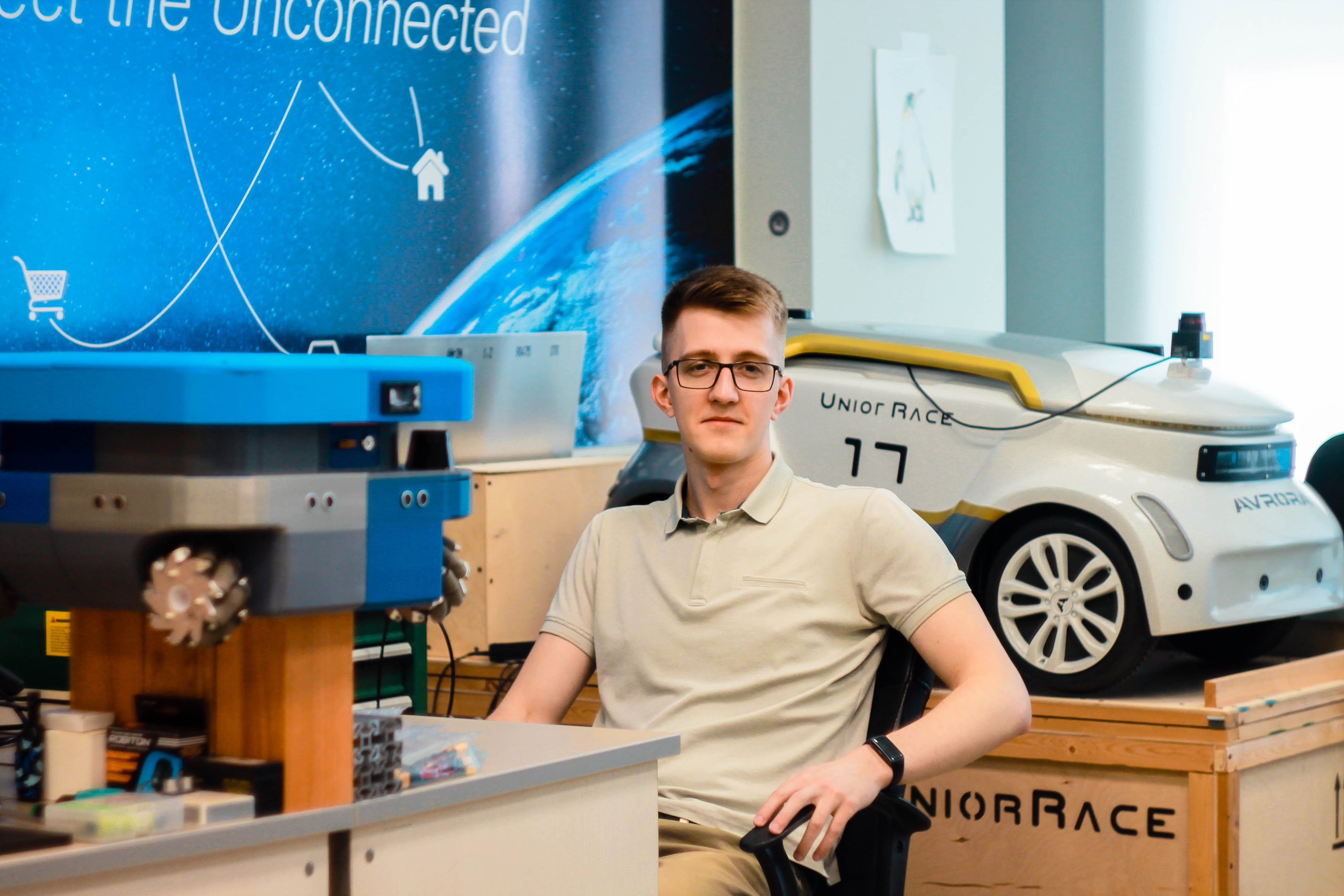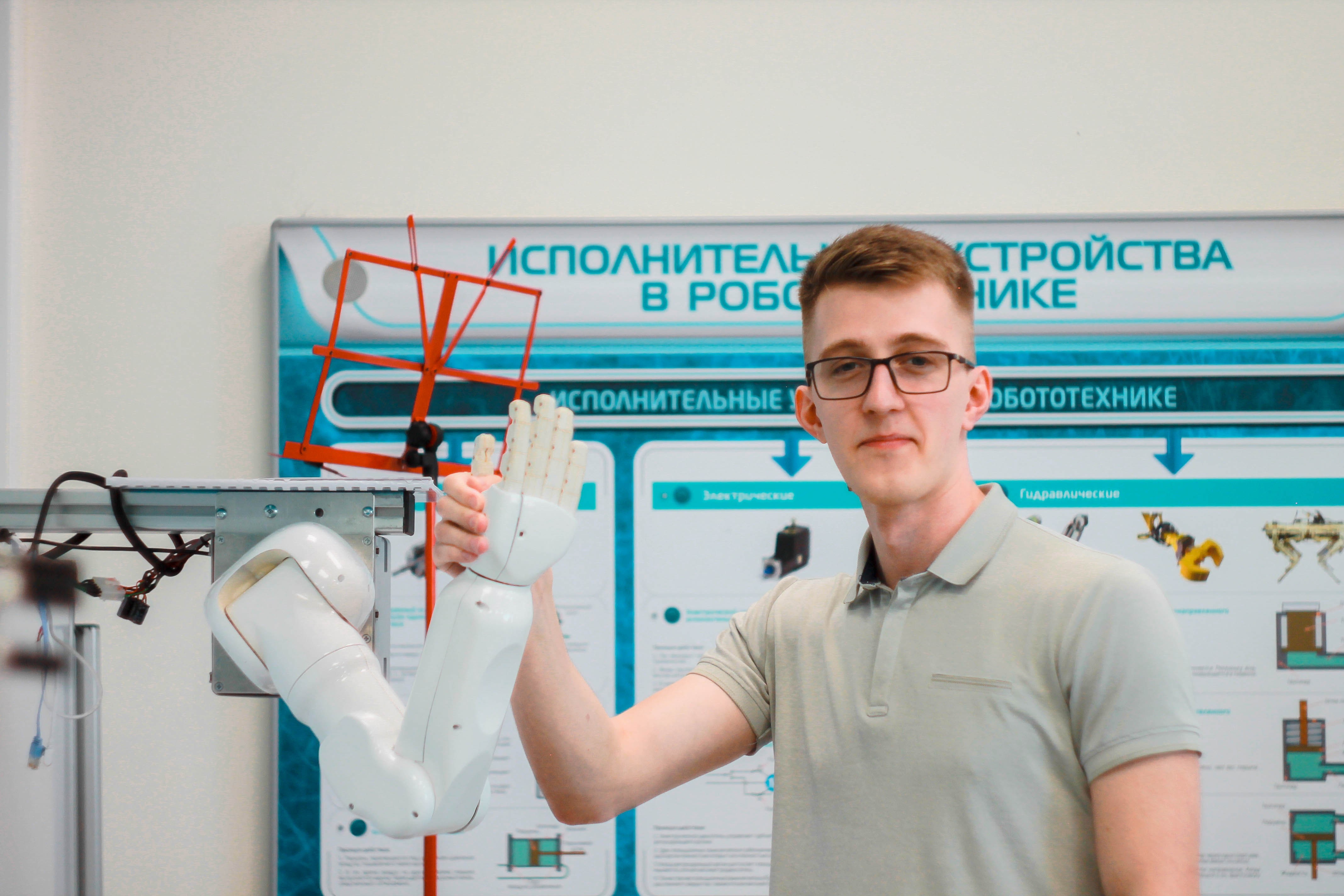Interview with a graduate of the Master's program 'Intelligent Robotics' 2024

Initially, I didn’t set myself the goal to be a roboticist. I knew nothing about Isaac Asimov or Karel Capek. And I found out what intelligent robotics is much later than when I started the Master's program. I could say that the choice of the program was rather intuitive, and it is hard for me to say whether the university determined the place of study or the university determined the place of stay. It is common case, I had little idea what to do after finishing my bachelor’s degree, but I knew for sure that I wanted to continue programming and doing math. In fact, back then it was more of a challenge, moving to another city, another region, choosing a new field of study. Today I choose robotics because it is a very interesting field of knowledge that combines programming, mechatronics, electrical engineering, and mathematics. I see my growth in this field and great potential for the development in various spheres of human life.
Firstly, the experience with real robots: work with the industrial robot KUKA KR3 and anthropomorphic robot OP3. In my opinion, learning robot controlling and software is a unique experience possible only in the institute. Secondly, designing and programming our own LEGO robots. Despite the lack of application of such robots in real life, it gives a basic understanding of how the robot is organized, what kinematic and dynamic characteristics it has, how to calculate the odometry of the robot, build routes of movement, taking into account the limitations of sensors and chassis. Thirdly, working with robot sensors and controllers. On the one hand, this does not require deep knowledge in circuit and electrical engineering, on the other hand, it gives an idea of how the sensor is organized, what readings it gives, how to process them and how to use them for the robot's perception of the environment. Fourth is the study of the ROS (Robotic Operating System) framework. Mastery of this tool is the basis for programming robots.
Basic knowledge of Python and C++ programming languages is required, as almost all of the major subjects involve coding. Basic understanding of linear algebra is required to work with linear transformations – calculating direct and inverse kinematics of the robot, robot position, etc. Minimum knowledge of English is necessary to work with sources, with lecture material. You need to understand that Russian-language literature on robotics is very limited.
I think the situation here is similar to other fields. If a person has experience working with code or is ready to develop programming skills, they will be able to cope with the curriculum. The most important thing, in my opinion, is to choose the exact direction and topic of your research so that you can start writing a thesis from the beginning of your Master's program: build a structure, do a high-quality literature review, and as you learn the material, supplement and refine the goals and objectives of your research.
The study divided into lectures and practical classes. Each lecture is usually followed by a homework assignment on the material covered. On practical classes students show their code, a presentation, or a demonstration of the robot work with the designed software. There are also competitions in LEGO disciplines at the end of the semester, so the winner gets the maximum grade for the course.
The main idea of my Master's thesis is to recognize reflecting objects with a laser distance gauge. This task is a part of a large problem – robot localization and mapping with obstacles. I didn’t come to the current thesis topic immediately, I initially investigated mapping from heterogeneous sensor data because I wanted to deal with the SLAM problem. The topic was chosen from a list suggested by my supervisor. When I reviewed the literature, it became clear that the problem under investigation was too broad. Therefore, we decided to focus on the factors that hinder effective ground mapping. The situation is the same for other students – everyone starts with a topic proposed by the research advisor; then, as the existing solutions are studied, you narrow the topic. Students rarely come with their own topic - usually these are students who have already a lot of previous experience and knowledge in robotics, for example, who have completed a Bachelor's degree in robotics.
I’m going to continue the postgraduate program in robotics after completing my Master's degree.
Broadly speaking, a Master's degree is an opportunity to deepen your knowledge in the disciplines you are interested. Master's programs are a good start for future graduate students and for scholars and scientists in general. Specifically, our master's program is an excellent entry point into robotics, for work both in the institute and at the company.



